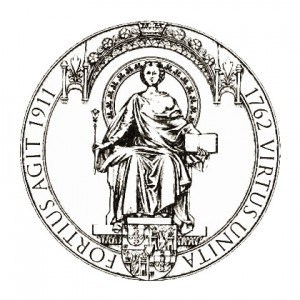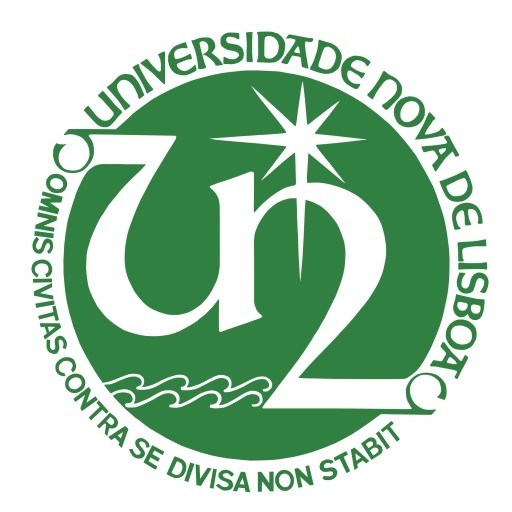Photos of university / #uporto
The Bachelor's Degree in Electrical and Computer Engineering at the University of Porto offers a comprehensive and rigorous education designed to prepare students for a successful career in the technologically driven world. This program integrates fundamental principles of electrical engineering and computer science, enabling graduates to design, develop, and maintain complex systems across a wide range of industries. Throughout the course, students acquire strong technical skills in areas such as circuit analysis, digital systems, signal processing, telecommunications, embedded systems, and software development, ensuring they are well-equipped to address contemporary challenges in electronics and computing.
The curriculum is structured to provide a solid theoretical foundation complemented by practical laboratory sessions, projects, and internships. This combination fosters critical thinking, problem-solving abilities, and hands-on experience, which are essential in the fast-evolving fields of electrical and computer engineering. Students will have opportunities to specialize in various subsystems such as power systems, control systems, microelectronics, embedded systems, and information technologies, aligning their education with their career aspirations.
The program emphasizes innovation and research, encouraging students to participate in projects that explore cutting-edge topics like renewable energy, automation, IoT (Internet of Things), artificial intelligence, and cybersecurity. The university’s partnerships with industry leaders facilitate internships and cooperative education, providing real-world experience and networking opportunities. Graduates of this program are prepared to work in diverse sectors including telecommunications, energy, manufacturing, information technology, robotics, and more.
The teaching faculty comprises experienced researchers and industry professionals dedicated to mentoring students and fostering a dynamic learning environment. The curriculum is regularly updated to keep pace with advancements in technology, ensuring that students gain relevant and up-to-date knowledge. Additionally, students are encouraged to develop soft skills such as teamwork, communication, and project management, which are vital for leadership roles in engineering.
Upon completion of the Bachelor's Degree in Electrical and Computer Engineering, graduates will be well-positioned to pursue further specialization through master's programs or enter the workforce directly, contributing innovation and expertise in their chosen careers. The program promotes an entrepreneurial mindset, inspiring students to develop new ideas and solutions that can influence society and support sustainable development. Overall, this degree program at the University of Porto aims to cultivate highly competent professionals who are ready to meet the evolving technological demands of the modern world.
The Bachelor's Degree in Electrical and Computer Engineering at the University of Porto offers a comprehensive and rigorous curriculum designed to prepare students for the dynamic fields of electrical and computer engineering. The program provides foundational knowledge in mathematics, physics, and computer science, which underpin advanced courses in electrical systems, electronics, digital systems, and software development. Students gain practical experience through laboratory work, seminars, and project-based learning, fostering analytical thinking, problem-solving skills, and innovation.
The curriculum covers a wide range of topics including electrical circuits, signal processing, control systems, telecommunications, power systems, and embedded systems. Additionally, students explore computer architecture, programming languages, software engineering, and data management, enabling them to develop integrated solutions for complex technological challenges. Emphasis is placed on the development of versatile competencies, ensuring graduates are well-equipped for careers in industry, research, or technology development.
The program also incorporates modules on sustainable energy, automation, and the ethical considerations of engineering practice, reflecting the current trends and societal needs. Students are encouraged to participate in internships and industrial collaborations, providing real-world experience and networking opportunities. The university’s strong ties with industry partners and research centers enhance the educational experience, enabling students to engage in innovative projects and cutting-edge research.
Graduates of this program are prepared to pursue careers as electrical engineers, computer engineers, system designers, or continue their education through master's and doctoral studies. The program emphasizes critical thinking, teamwork, and effective communication, essential skills for adapting to technological change and contributing positively to society. Overall, the Bachelor’s Degree in Electrical and Computer Engineering at the University of Porto aims to cultivate highly skilled professionals capable of addressing the technical and societal challenges of the 21st century.
The Bachelor in Electrical and Computer Engineering at the University of Porto requires students to complete a comprehensive curriculum designed to provide foundational and advanced knowledge in electrical engineering, computer engineering, and related interdisciplinary fields. The program includes core courses such as Circuit Theory, Digital Systems, Signals and Systems, Electromagnetism, and Computer Architecture, which equip students with essential technical skills. Students are also required to undertake courses in programming, algorithms, and software development, emphasizing computational competencies vital for modern engineering practice. To ensure practical experience, the curriculum incorporates Laboratory exercises, project-based learning, and industry internships, fostering hands-on skills and real-world problem-solving abilities.
Electives allow students to specialize in areas such as telecommunications, control systems, embedded systems, power systems, and information technology, enabling tailored educational paths aligned with their career interests. The program emphasizes the importance of multidisciplinary knowledge by integrating courses in mathematics, physics, and hardware and software integration. Additionally, students must complete a final undergraduate project or thesis, demonstrating their ability to apply theoretical knowledge to practical engineering challenges.
Language proficiency in English is encouraged, and some courses are offered in English to prepare students for international careers. The program's structure complies with European Higher Education Area standards, promoting mobility and recognition across Europe. Throughout the course of study, students are expected to develop not only technical expertise but also soft skills such as teamwork, communication, and ethical responsibility. The program is periodically reviewed to incorporate emerging technologies and industry trends, ensuring graduates are well-equipped for the evolving job market. Overall, the program’s requirements aim to produce versatile electrical and computer engineers capable of innovation and leadership in industry, academia, or entrepreneurship.
Financing studies for the Electrical and Computer Engineering program at the University of Porto are designed to support students throughout their academic journey, ensuring access to quality education regardless of financial background. The university offers a variety of funding options, including scholarships, grants, and financial aid programs, which are available to both domestic and international students. Scholarships may be awarded based on academic excellence, financial need, or specific criteria related to the student's background or research interests. The university actively encourages students to apply for these funding opportunities, which can significantly reduce tuition costs and living expenses.
In addition to university-specific financial aid, students can explore external funding sources such as government scholarships, European Union funding programs, and private foundations dedicated to supporting engineering students. The Portuguese government provides several scholarship schemes for international students, potentially covering tuition fees and offering stipends for living costs. The European Union's Erasmus+ program also enables students to participate in mobility and exchange programs, which can include financial support for study periods abroad or collaborative research projects.
Students enrolled in the program are advised to consult the university's financial aid office early in their studies to identify suitable funding opportunities and to ensure timely application. The university also provides guidance on how to prepare scholarship applications, including required documentation and deadlines. Furthermore, part-time work opportunities within the university or in the surrounding community may be available for students seeking additional financial support, subject to visa regulations for international students.
Overall, the University of Porto's commitment to accessible education is reflected in its comprehensive approach to student financing, combining institutional support, external funding opportunities, and employment options. Prospective students are encouraged to review the detailed eligibility criteria and application procedures for each funding source to maximize their chances of securing financial assistance. With these resources, students pursuing their degree in Electrical and Computer Engineering at the University of Porto can focus on their academic and professional development without undue financial stress.
The Electrical and Computer Engineering program at the University of Porto offers a comprehensive curriculum designed to prepare students for various professional careers in the fields of electrical engineering and computer technology. The program encompasses fundamental sciences such as mathematics, physics, and computer science, which are essential for understanding the core principles of engineering. Students gain practical skills through laboratory work, projects, and internships that allow them to apply theoretical knowledge to real-world problems. The curriculum includes coursework in electronic circuits, digital systems, signal processing, control systems, telecommunications, power systems, and embedded systems, among others.
Throughout their studies, students are encouraged to develop critical thinking, problem-solving abilities, and innovative design skills. The program emphasizes the importance of research and development, with opportunities for students to participate in ongoing projects and collaborations with industry partners. The faculty comprises experienced professionals and researchers who are actively involved in advancing knowledge in various specialties within electrical and computer engineering. Additionally, the program prepares students to pursue postgraduate studies or enter the workforce directly, with a variety of career paths available in industries such as telecommunications, energy, automation, robotics, and information technology.
The University of Porto’s strong ties with industry and research institutions facilitate internships, cooperative education, and networking opportunities, enhancing students’ employability after graduation. The language of instruction is primarily Portuguese, but some courses and materials are available in English to promote internationalization. Graduates from the program are equipped with not only technical expertise but also with ethical and social responsibility considerations, enabling them to contribute positively to technological advancement and societal development. The program is accredited by relevant European and national bodies, ensuring high-quality standards and recognition across Europe.










